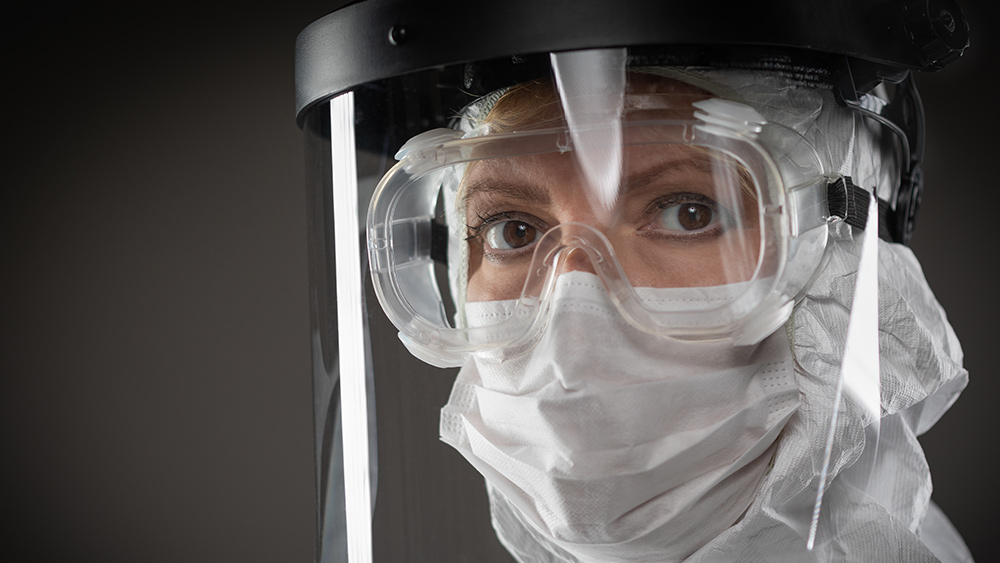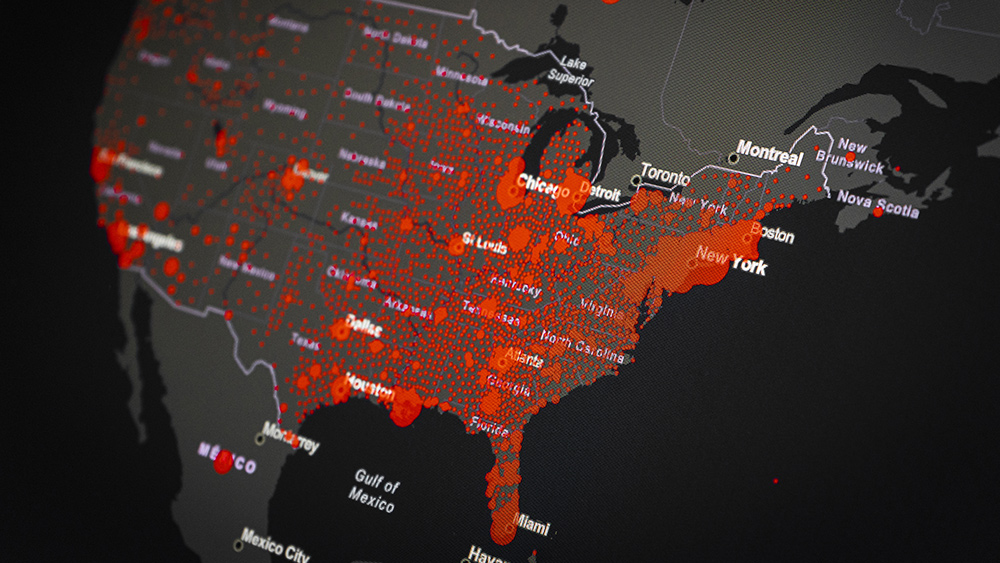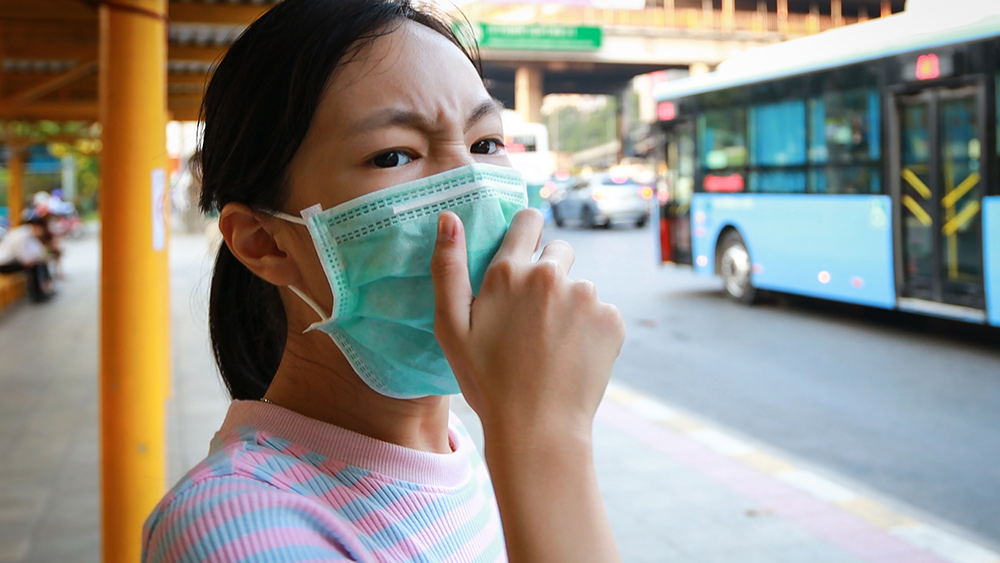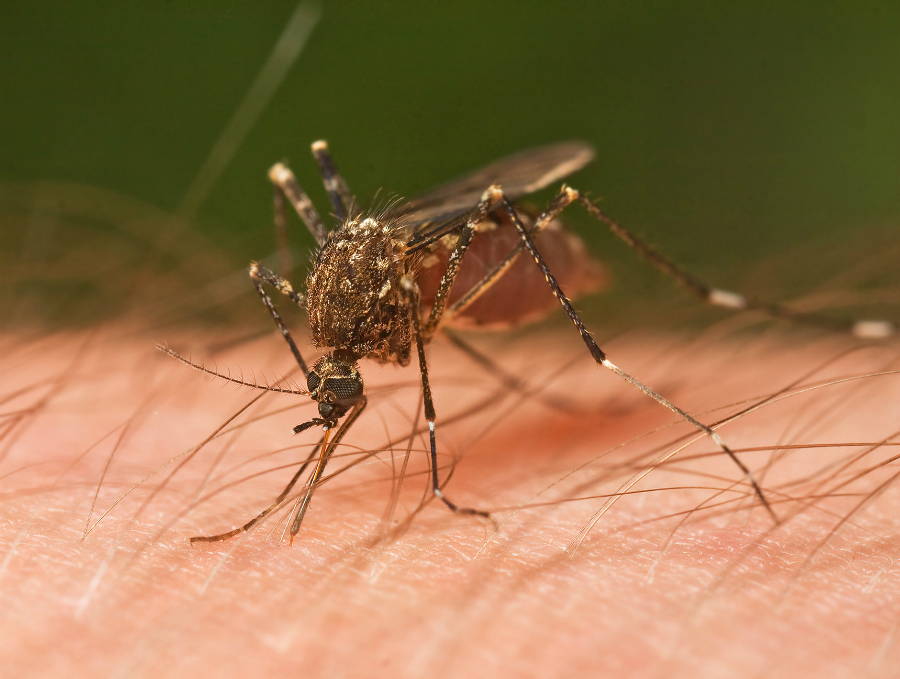Study shows mask-wearers more likely to disregard social distancing guidelines
08/26/2020 / By Ramon Tomey

People who wear face masks are more likely to flout social distancing rules because they feel more comfortable sitting or standing close to others, suggests a new study. In their report, a team of behavioral scientists from the Warwick Business School in England noted that people wearing face masks tend to keep a smaller distance from others wearing face coverings. In addition, this behavior was seen among those who believe that face coverings can effectively prevent the spread of the coronavirus.
The study’s findings hint at a classic case of risk compensation, explained lead author Ashley Luckman. Risk compensation, in behavioral science, suggests that people adjust their behavior in response to their perceived level of risk.
“Wearing masks brings down the overall risk of spreading COVID-19, so people feel safer and are more willing to take other risks, such as decreasing the physical distance between them and others,” explained Luckman, adding that governments should set forth clear guidelines for social distancing, even when wearing masks.
“Masks are not an alternative to social distancing,” she added.
The team showed 800 people in the U.K. pictures of people sitting, standing or walking. The researchers then asked the participants whether they would be willing to stand close to the person in the picture. The photos included indoor and outdoor settings, as well as two people, with either one or both wearing masks. (Related: Walmart to require all shoppers to wear face masks.)
The findings revealed that people were more likely to tolerate being closer to others if either they or the other person was wearing a mask. In particular, people wearing a mask reported being comfortable standing 1.8 meters from others. However, they reported wanted a gap larger than two meters apart without a face covering.
Those who believed that masks prevented them from catching COVID-19 were the most willing to stand closer to other mask-wearing people. However, people who believe they fall under the at-risk population were more likely to stand further from others.
Findings relevant to social distancing guidelines
The group’s findings contracted an earlier study published in the Proceedings of the National Academy of Sciences, which indicated that people wearing face coverings were 13 times more likely to follow social distancing measures. In the study, the researchers proffered that wearing masks is seen as a social contract that people comply and that it signals prosocial concerns.
For Daniel Read, a behavioral scientist at Warwick and co-author of the study, more evidence is needed to demonstrate the risks of reducing social distancing measures when mask usage is mandatory. Australia, for instance, is considering relaxing social distancing measures while urging residents to still wear masks.
“Clearly, the greatest benefit results from using masks to complement social distancing, rather than replacing it,” he added.
The findings from their study, he added, are particularly relevant for countries that have high mask usage but with relaxed social distancing measures. He further remarked that more stringent distancing measures may be harder to implement in case of a second wave, compared to when people weren’t using masks at the start of the pandemic.
The United Kingdom has a COVID-19 caseload of 329,869 and a death toll of 41,535, according to data from Johns Hopkins University.
Learn more about social distancing and other rules implemented by countries worldwide to stop the Wuhan coronavirus at Pandemic.news.
Sources include:
Tagged Under: coronavirus, covid pandemic, covid-19, face masks, infections, mask wearing, masks, N95 masks, outbreak, pandemic, physical distancing, physical distancing measures, SARS-Cov2, social distancing, social distancing measures, United Kingdom, wear masks, Wuhan, Wuhan coronavirus



















